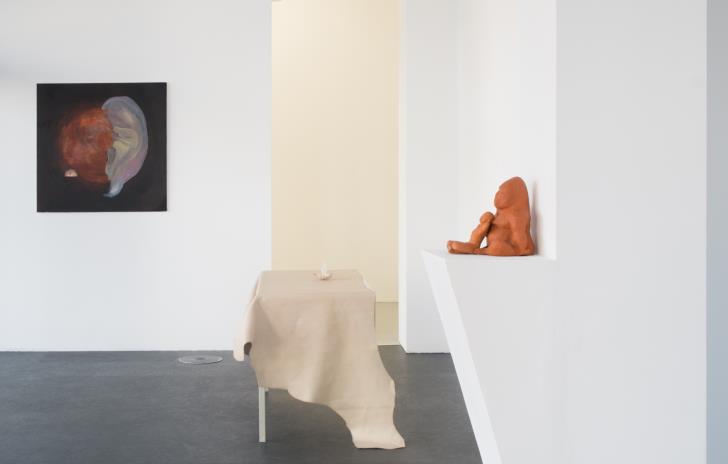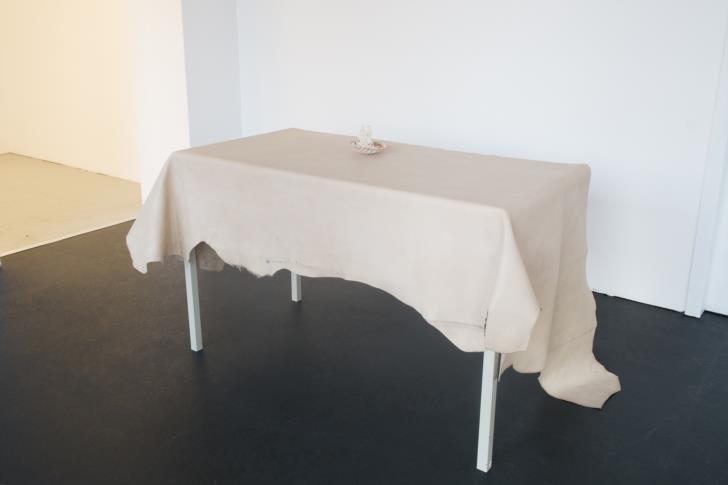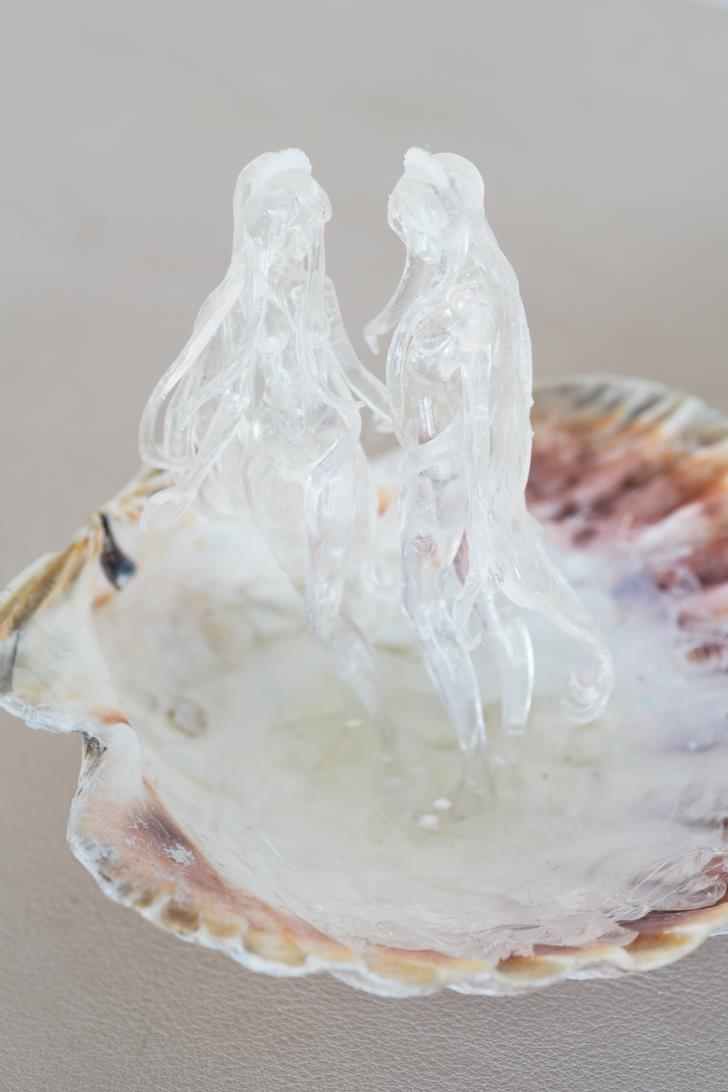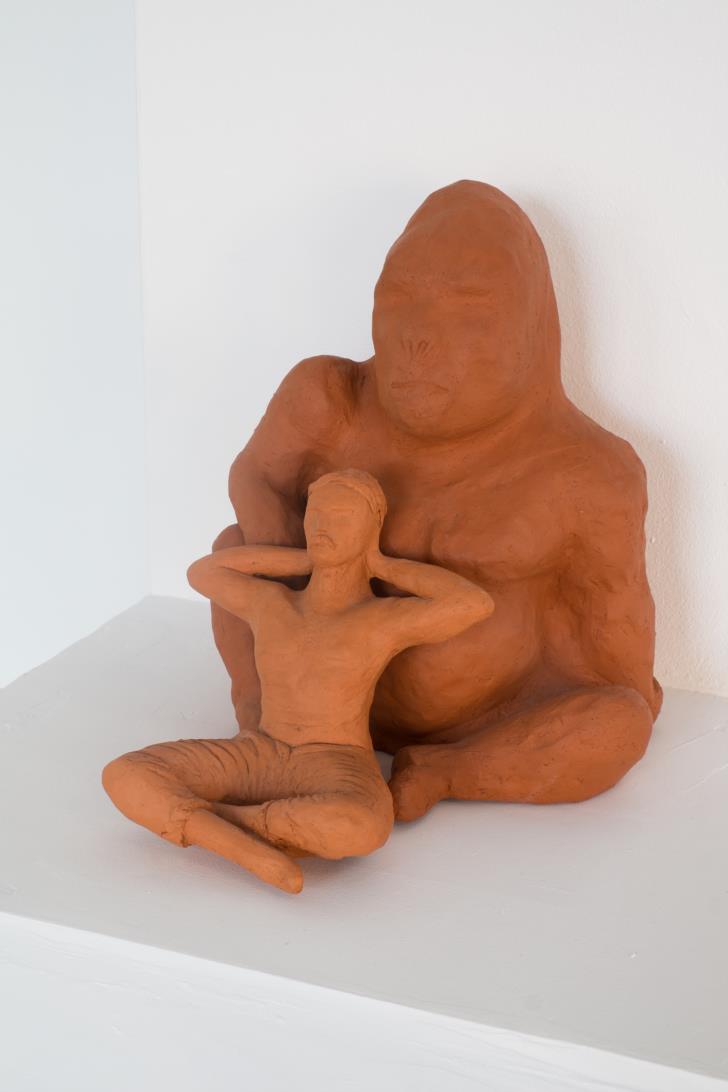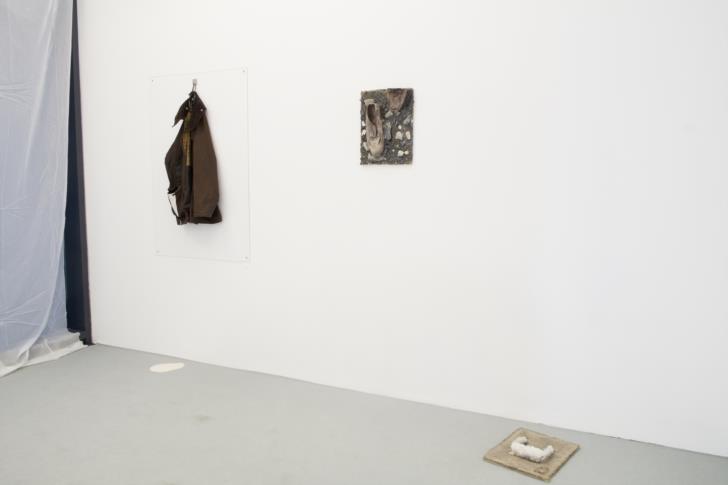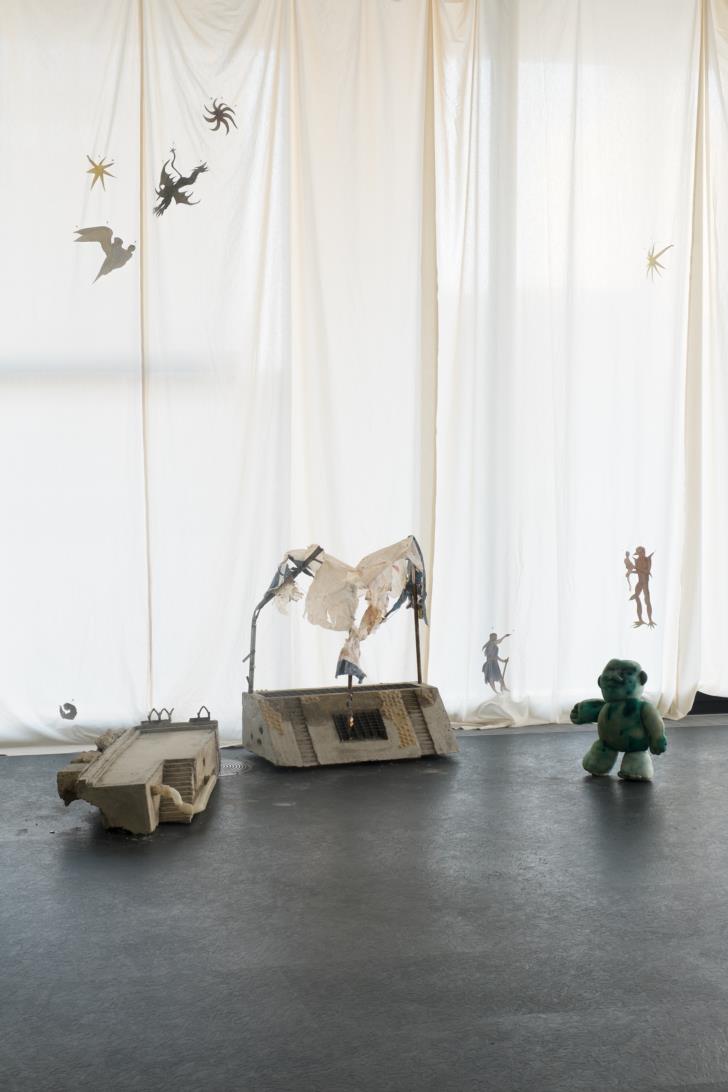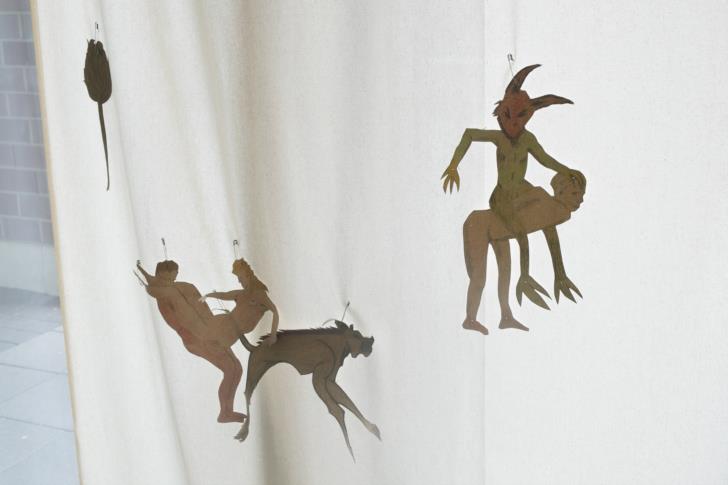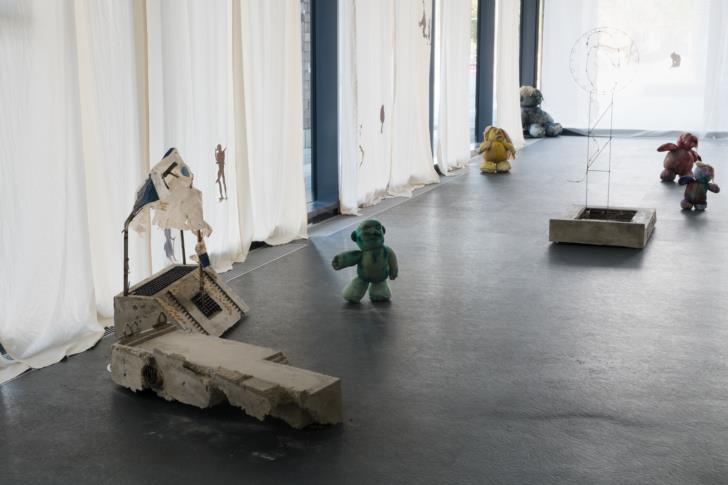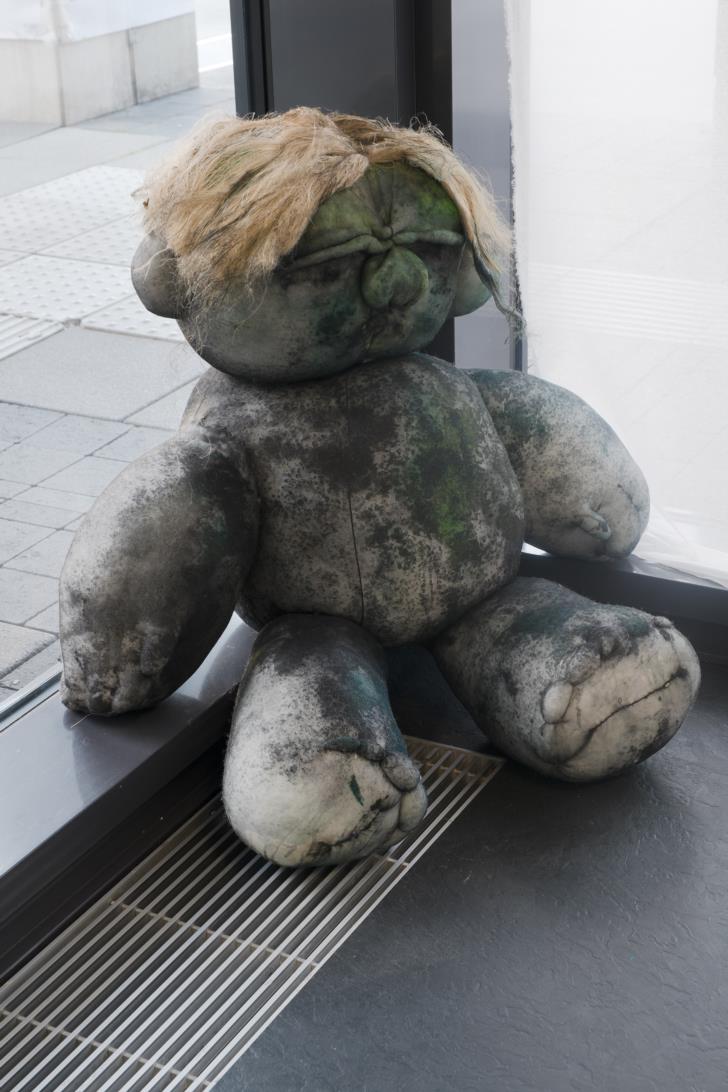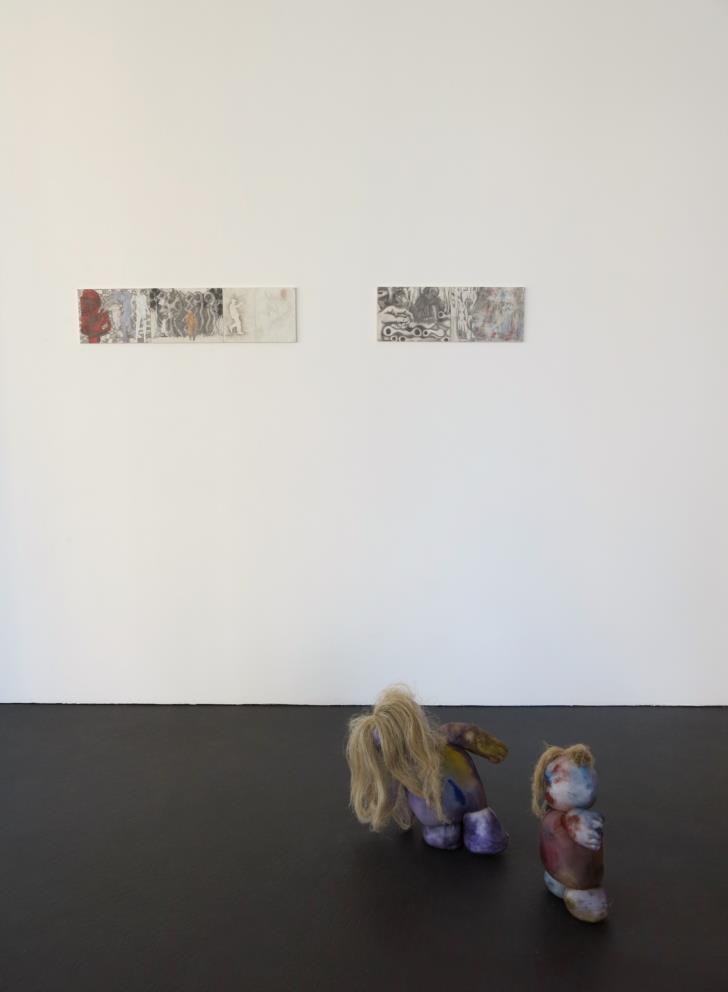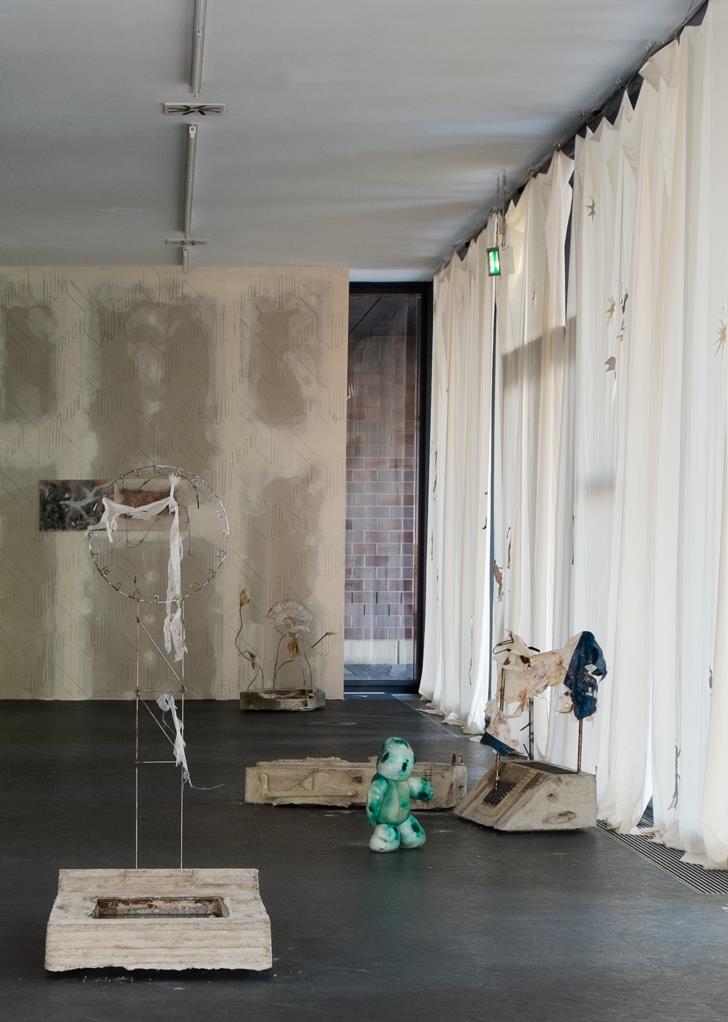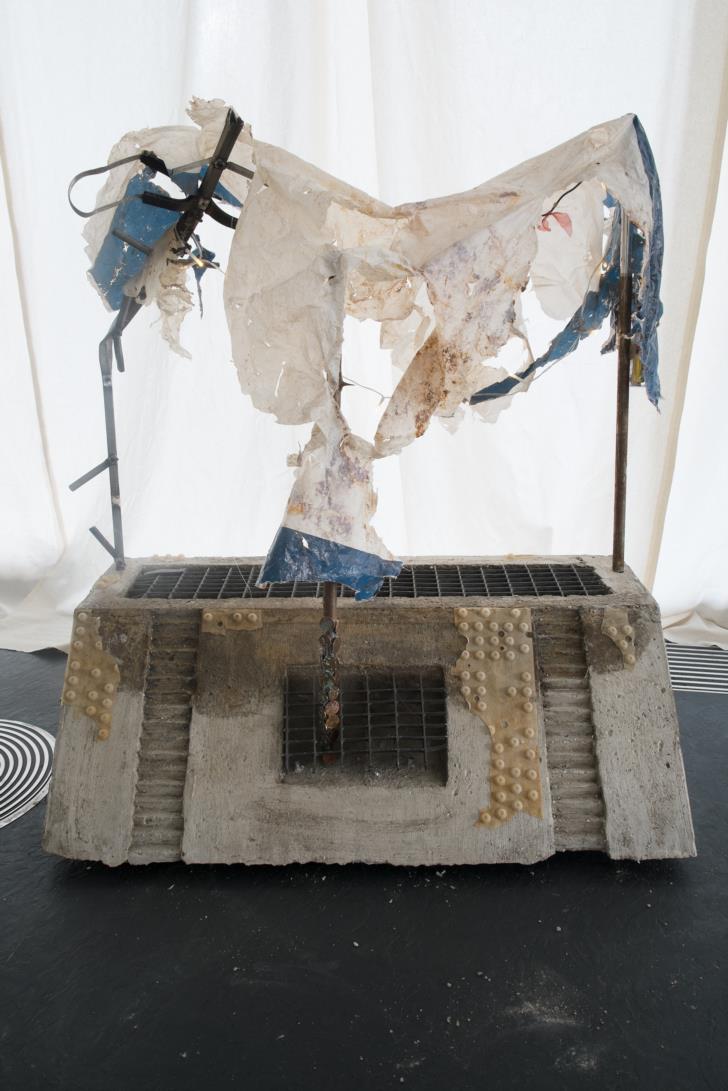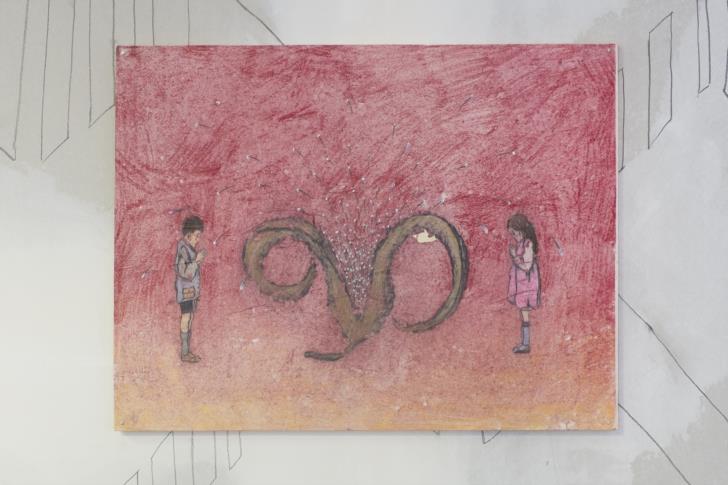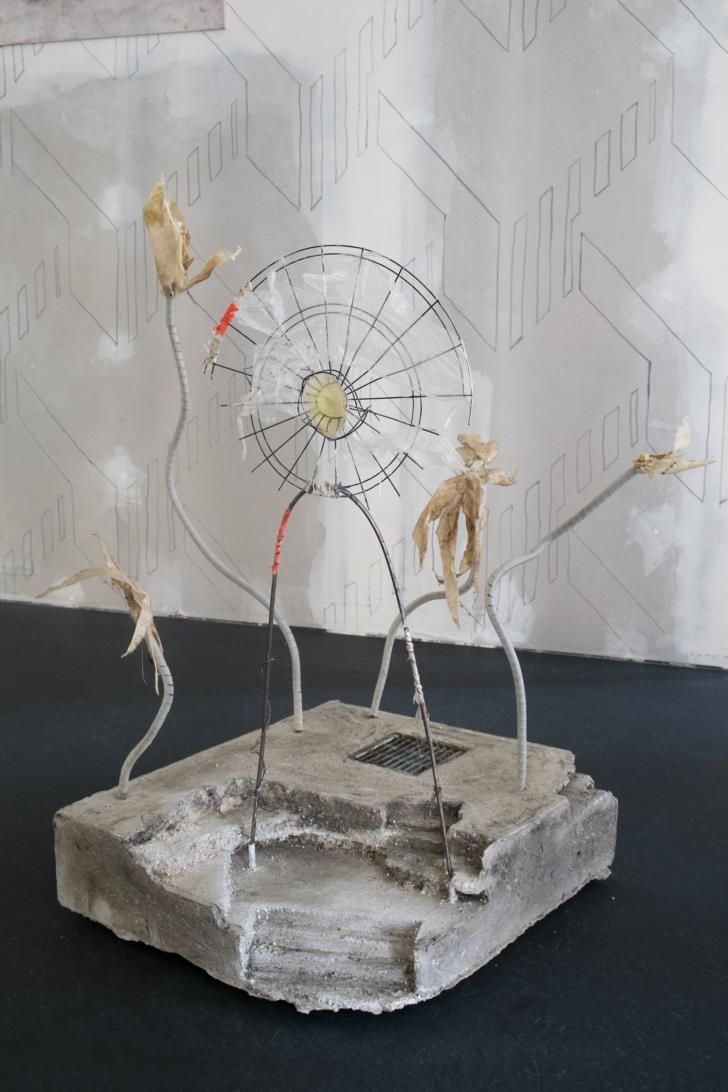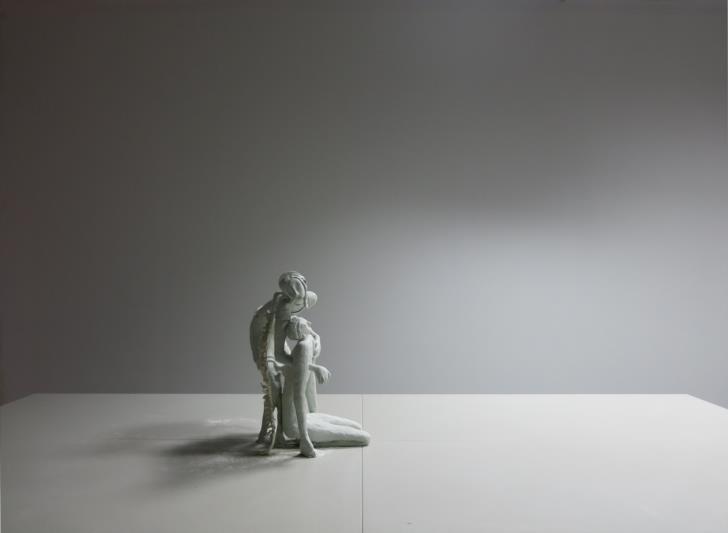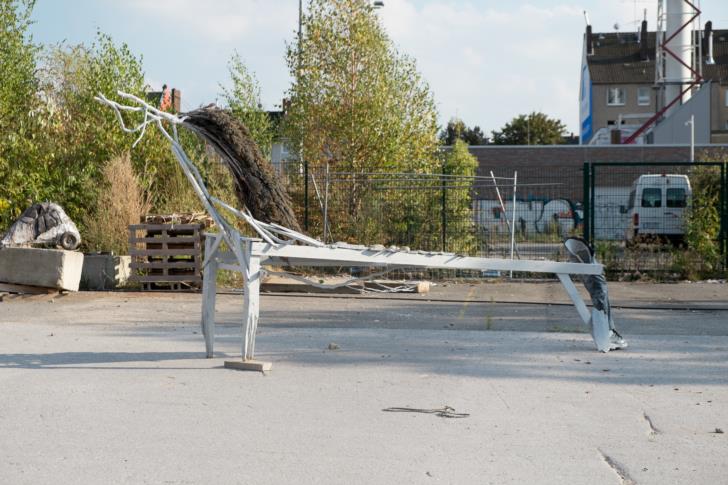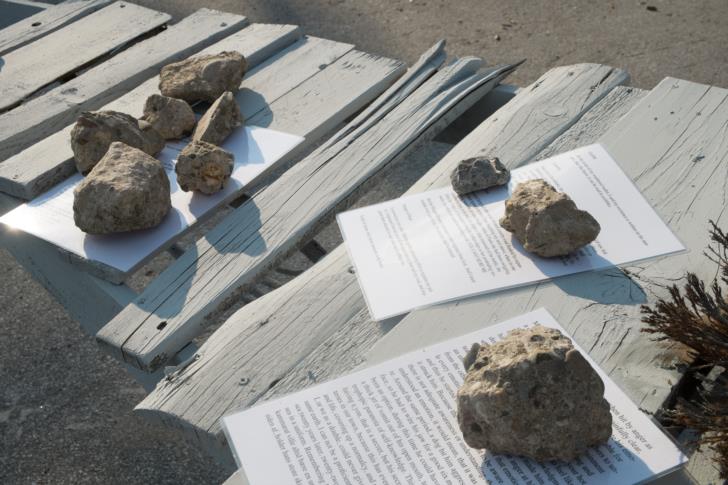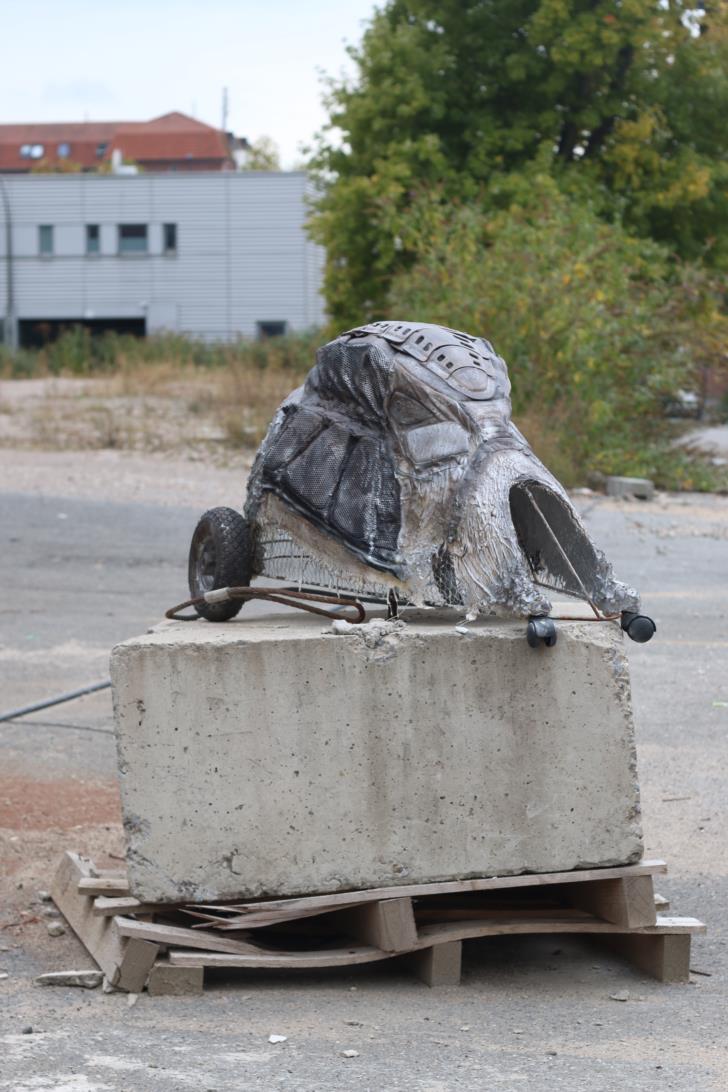ICHTS
Sam Anderson, Frieder Haller, Aleksander Hardashnakov, Olga Pedan and Arjan Stockhausen
27 August – 30 October 2016
Based on a common interest for the aesthetics of the naive, manual production and the decay, the five artists Sam Anderson (*1982 in Los Angeles, USA), Frieder Haller (*1987 in Freiburg im Breisgau, GER), Aleksander Hardashnakov (*1982 in Toronto, CA), Olga Pedan (*1988 in Kharkov, UKR) und Arjan Stockhausen (*1992 in Alfter, GER) are brought together within the frameworks of the exhibition ICHTS. Their works are embedded in a fictional narration which addresses the contradictory nature of reality with its continuous shifts in politics and society. The exhibition does not attempt to offer a clarified and analytical view upon the world, but rather, within a framework set by each individual artwork, to trigger a sentiment which comes from the manifestation of a diffuse uncertainty.
The exhibition title ICHTS already stands emblematically for a displacement: the artificial word ‘ichts’ is composed of the word ‘nichts’, meaning nothing, and ‘ich’, meaning I. The neology thus contains a dichotomy between a manifold identity and a departure from the idea of a singular self. Othing could refer to any formation of people, to a hybrid form, to a mutant, to an always changing digital I, to a personality without a body, or perhaps a new term, which ultimately replaces the self.
Detached from a temporal allocation, the works of the five artists develop narrations about different forms of the self – partly mythological, mystical, dystopian or even esoteric. Children, demons, murderers, nuns, manga characters, trolls, left and decayed concrete constructions, and a human resting his back on a gorilla evoke fantastical worlds in which emotions like happiness or fear, hope or pain, evanescence and fragility can be openly expressed. Here, the need to recognize humans as non-rational and to activate this power through visual narratives is formulated.
The exhibition was conceived by Oriane Durand together with Frieder Haller and Arjan Stockhausen.
Kindly supported by


